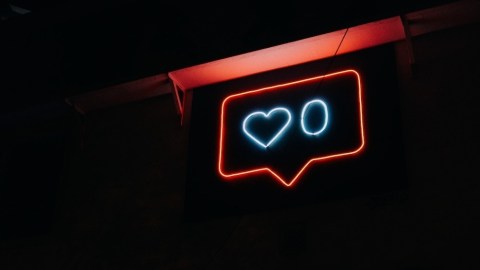Facebook is considering removing ‘like’ counts

Photo credit: Prateek Katyal on Unsplash
- Facebook is considering hiding its "likes" tally, but hasn't offered any concrete details.
- Hiding likes is a feature that Facebook-owned Instagram has already begun testing in a number of different countries.
- The company is motivated by their concern for people's mental health, as well as a drive to increase meaningful usage of their sites.
Facebook is playing with the idea of hiding the public “like” feature that appears underneath user’s posts. Engineer Jane Manchun Wong suspected this endeavor while looking through and testing Facebook’s code — the company has since followed up and confirmed the experiment.
A Facebook spokesperson said in an email, “We are considering hiding like counts from Facebook.” The company’s higher-ups believe that, by hiding the like counter, they’ll discourage self-censorship and curb unhealthy envious behavior that could lead to stress and mental health issues.
Instagram and a number of other social media sites are either actively testing or considering implementing a similar initiative.
Facebook hiding likes
Indeed, Instagram has already begun testing this in 7 countries, where they only show a user’s audience a few names of mutual friends who’ve liked the post instead of the full range of likes.
As Instagram is owned by Facebook, it was only a matter of time before they started testing it on the parent company’s main site.
The idea is to stop users from comparing themselves against others and feeling bad if their content doesn’t get as many likes as someone else. It also could ensure that more people keep posting and stay active, which is a necessity for Facebook’s bottom line.
The new feature would allow the user to see how many people “liked” the post, but the total tally wouldn’t be displayed to their network or general public. Companies such as Twitter are also rethinking about the way conversations are formatted on the site. This said, they are also considering hiding likes and retweets.
This is all part of a larger push from these companies to ensure that users are engaging in what they consider “well spent” time on their platforms.
Facebook’s prototype may suggest that there were positive results from eliminating the like tallies on Instagram. Increasingly, Facebook has been negated to a site where users infrequently post, unless a major life event occurs. The day to day of people’s lives is being more readily documented on channels such as Instagram or Snapchat.
By avoiding this “like envy,” people can become more comfortable in being active on the platform. A good deal of posts also consist of political or news-oriented content pieces. The company wants to reignite the spark of connecting with friends and loved ones. Even Mark Zuckerberg has spoken about having meaningful time well spent on the platform. In a quarterly earnings call he stated:
“Research shows that interacting with friends and family on social media tends to be more meaningful and can be good for our well-being, and that’s time well spent. But when we just passively consume content, that may be less true.”
Social media likes and mental health
A 2017 study found that of all the major social media platforms, Instagram had the most detrimental effect on young people’s mental health. Removing like counts puts less pressure on young people who are trying to fit or keep up with inane cultural trends. The study found that just spending two hours a day on social media was linked with increased rates of anxiety, depression, and lessened quality of sleep.
In a similar vein, one recent UCLA study proved that teenagers are heavily susceptible to being influenced to the number of “likes” on a post. They’re more likely to engage with a post if more people have liked it, and equally feel worse if their posts didn’t get the same amount of interaction.
Only time will tell if the removal of the like tally has any long-ranging consequences for user’s mental health and interactivity with the platform.





